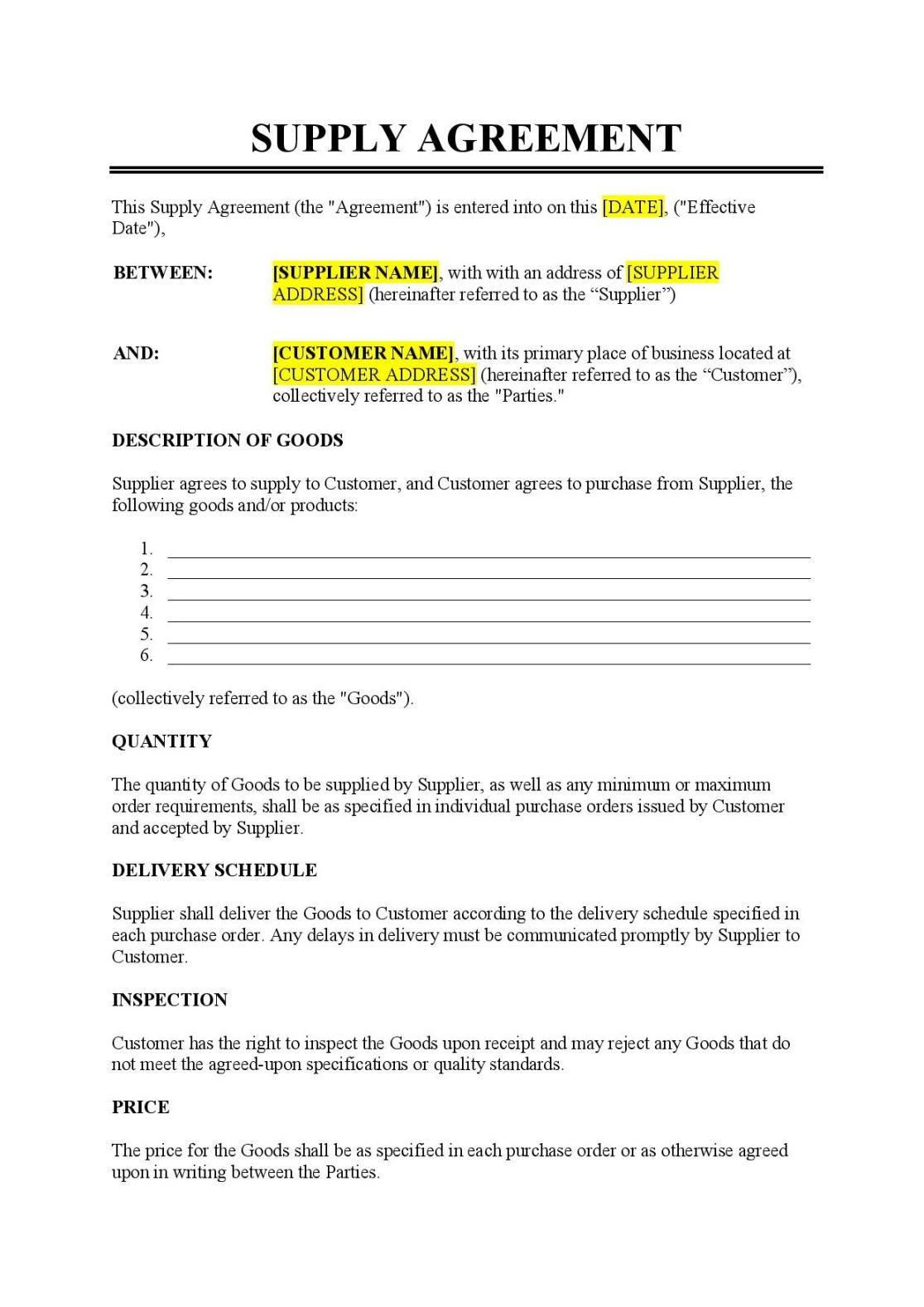A preferred supplier agreement template is a crucial document for any organization seeking to establish and maintain strong, mutually beneficial relationships with its key vendors. This legally binding agreement outlines the terms and conditions governing the relationship between the organization and its preferred suppliers, ensuring clarity, transparency, and a consistent framework for all parties involved.
Key Considerations for a Professional Template
Clarity and Conciseness: The language used within the agreement must be clear, concise, and free from ambiguity. Legal jargon should be minimized where possible, and complex terms should be defined clearly.

Image Source: easylegaldocs.com
Essential Clauses for a Preferred Supplier Agreement
Scope of Agreement
This section defines the scope of the agreement, including the specific goods or services covered, the duration of the agreement, and any applicable geographical limitations.
Supplier Obligations
This section outlines the obligations of the supplier, such as:

Image Source: easylegaldocs.com
Quality Standards: The supplier must meet or exceed specified quality standards and performance criteria.
Organization Obligations
This section outlines the obligations of the organization, such as:
Fair Dealing: The organization must treat the supplier fairly and equitably in all dealings.
Termination
This section outlines the grounds for termination of the agreement, including:
Material Breach: Either party may terminate the agreement upon the material breach of the other party.
Dispute Resolution
This section outlines the process for resolving any disputes that may arise between the parties. This may include:
Negotiation: The parties should attempt to resolve disputes through good faith negotiation.
Governing Law and Jurisdiction
This section specifies the governing law and jurisdiction for the agreement.
Notices
This section outlines the procedures for providing notices and other communications between the parties.
Entire Agreement
This section states that the agreement constitutes the entire agreement between the parties with respect to the subject matter thereof and supersedes all prior or contemporaneous communications, representations, or agreements, whether oral or written.
Amendments
This section outlines the procedures for amending the agreement.
Severability
This section provides that if any provision of the agreement is held to be invalid or unenforceable, such provision shall be struck and the remaining provisions shall remain in full force and effect.
Design Considerations for a Professional Template
Professional Formatting: The template should be professionally formatted with clear headings, subheadings, and bullet points to improve readability.
By carefully considering these factors and incorporating them into the template, organizations can create a professional and effective preferred supplier agreement that protects their interests and fosters strong, mutually beneficial relationships with their key vendors.